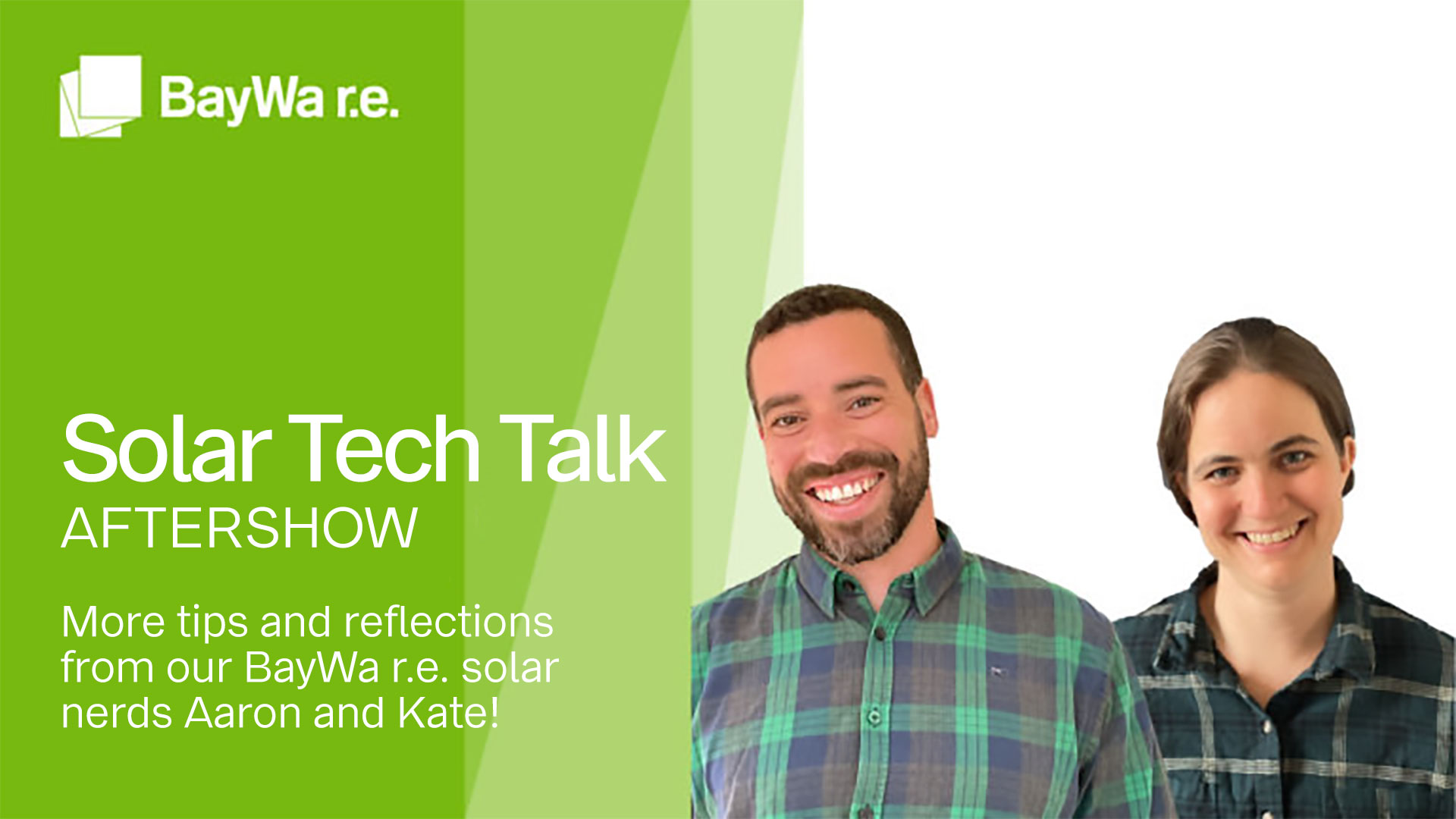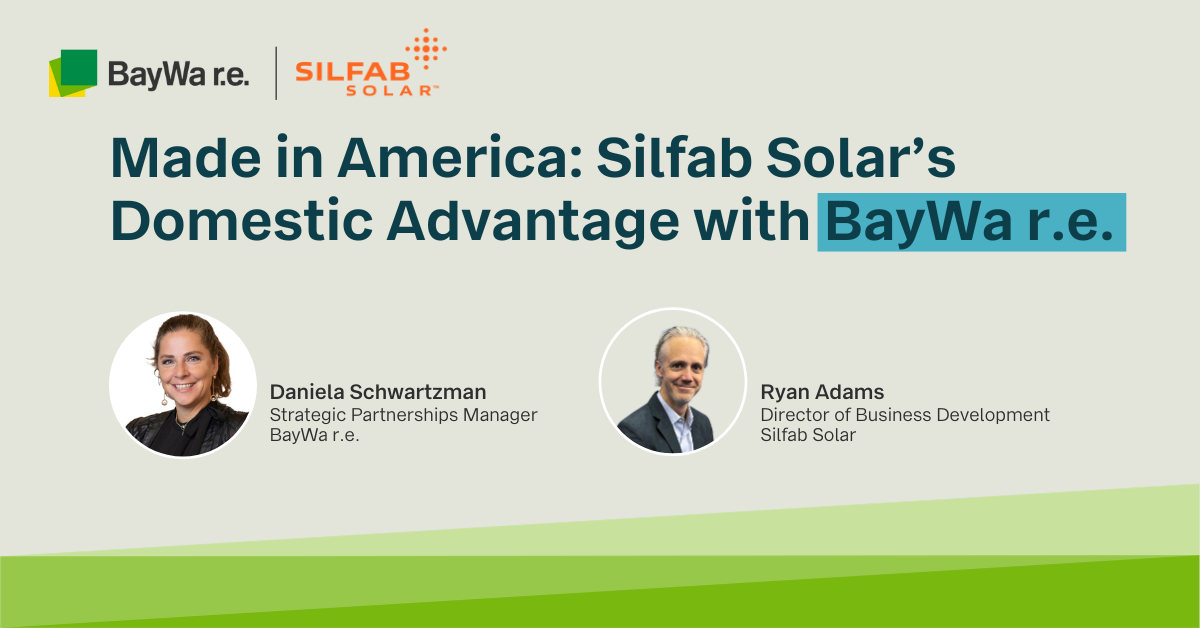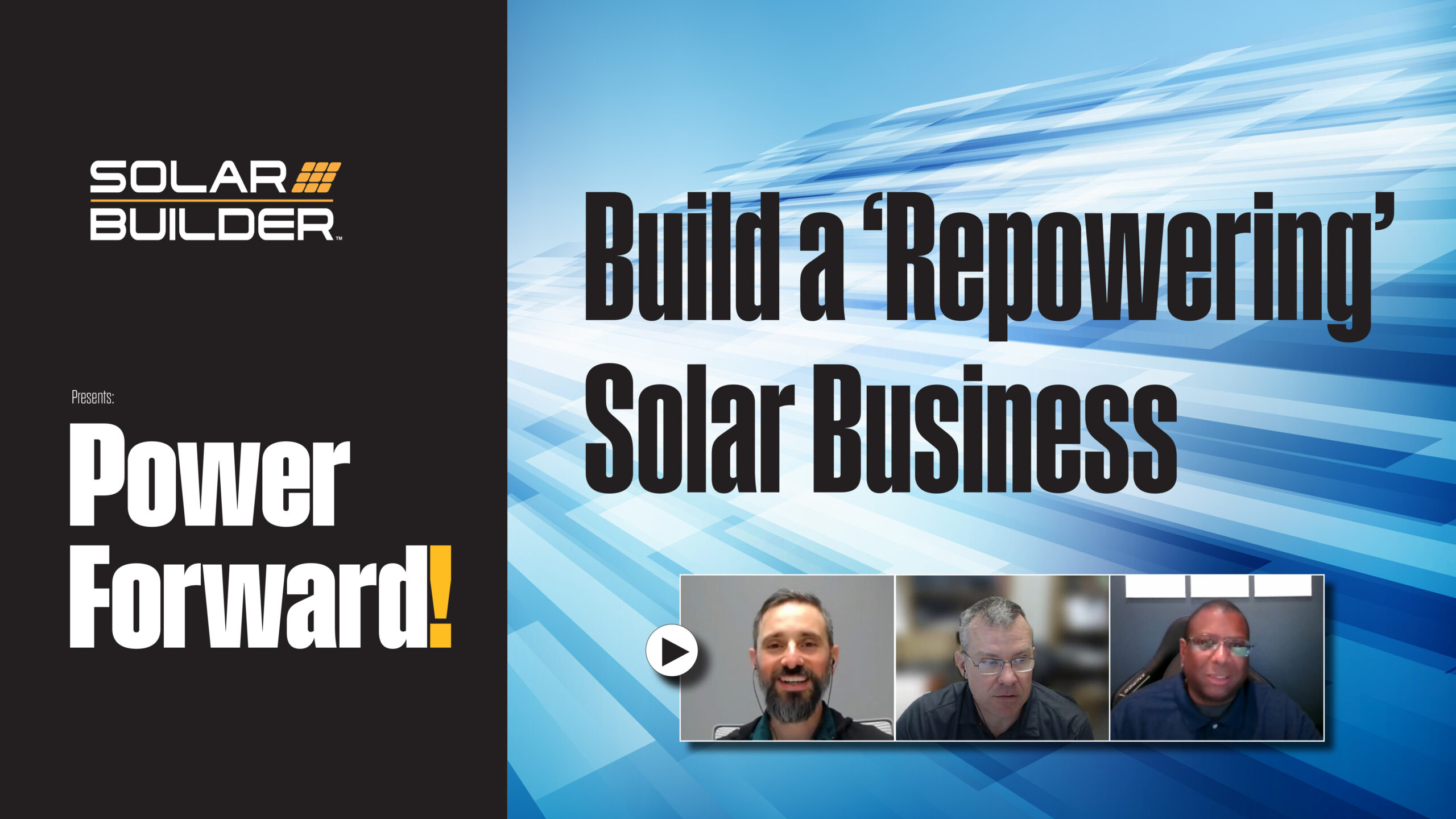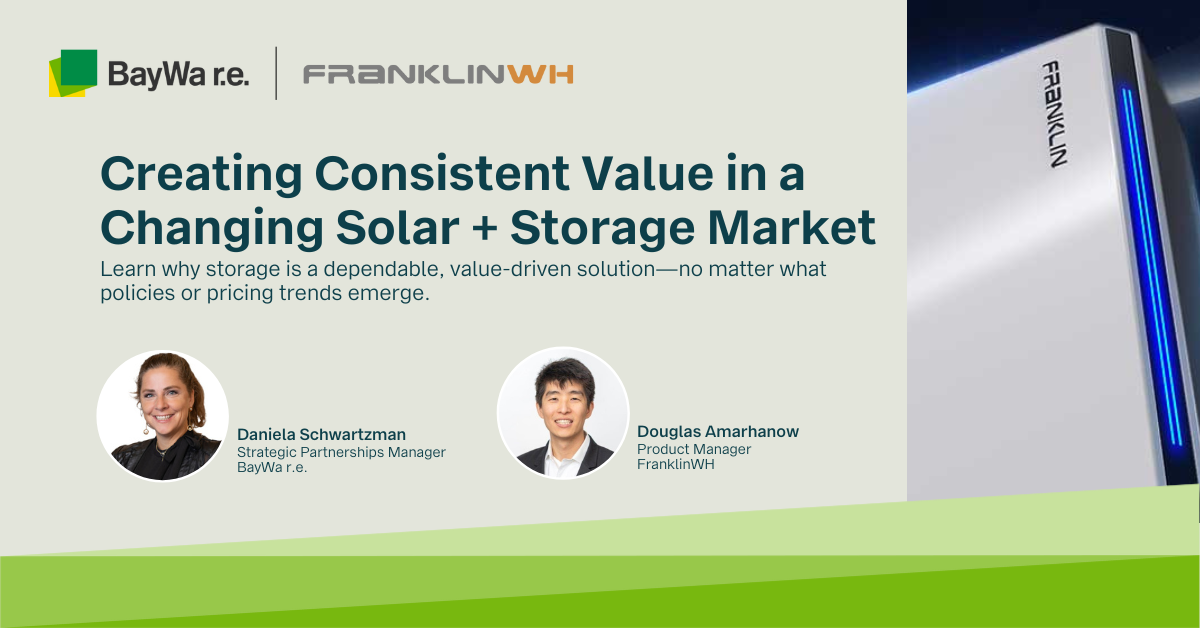
Thanks everyone for tuning into our latest Solar Tech Talk episode! If you haven’t watched or listened to Episode 5, you can find our conversation on PV racking standards and knowledge here.
Codes and standards are one of those solar tech issues that everyone can always benefit to learn more about. In this episode, Jeff Spies (President of Planet Plan Sets), Louis Woofenden (Engineering Director and Co-Owner of Net Zero Solar), and Connor Morrison (Product Manager at Unirac) highlight:
- Some truly helpful insights on UL 2703
- The guidelines for bonding, grounding, and mechanical loading for PV mounts and manufacturer installation instructions
- And ASCE 7, the structural standard that addresses aspects such as snow load and wind loading.
Skip the Warehouse Pickup with Webstore Ordering
Installers across the country are saving time by using our one-of-a-kind BayWa r.e. Webstore, shipping nationwide from one of our regional hubs — including our new REC modules. Together with our always helpful regional sales reps, we’ll help you plan out your procurement strategy so your jobs get done on track and on time.
Here are three quick takeaways from our conversation for the U.S. solar contractor community:
1. ASCE 7-16 is going to have a big impact on the number of attachment points in some areas.
ACSE 7-16 is a newer standard, with changes that impact pressure coefficients used to calculate wind loads on PV arrays for both uplift and downforce. In places like hurricane-prone coastal Florida, the eventual adoption of ACSE 7-16 could mean as much as four times more roof attachments required in worst case scenarios. “Rooftop solar installers are going to need to be really good friends with the roof attachment manufacturers, because they’re going to be buying a lot more of them,” according to Jeff Spies. So, start tracking whether ACSE 7-16 is being adopted by your state’s building code — and be prepared for potential changes to your usual project costs and quotes.
2. A contractor is legally obligated to follow the code. If the AHJ approves an installation that is not up to code and there is a fire, the contractor is liable.
This reminder drew a “wow” from all of us on the show. “This is something that doesn’t get discussed a lot in solar,” Jeff Spies said, which is remarkable because given the variations of standards between AHJ’s and the state — and as Jeff tells us, the fact that building department inspector has approved a design, it doesn’t mean it’s legal. So, I would definitely go back and pay attention to our conversation starting at the 26:15 mark.
3. Watch out for UL 61730.
This could be a fascinating new standard to keep an eye on that affects manufacturers and installers alike. Think about all the countless make, models, and variations in solar mounting components that are out there — you can’t always just mix and match with the PV modules you have on hand, given differences in their material, rating, and fit. UL 61730, which is under development, could institute “frame characteristic codes” on the module itself to indicate module-racking compliance. In other words, a helpful code imprinted on the hardware itself to remind installers what to use as the approved mount. Stay tuned as this conversation develops.
Watch our full Episode 5 recording to learn more from, Jeff, Louis, and Connor on these important topics. And check out our bonus Solar Tech Talk episode commemorating Solar Pride Month this June! As always, contact your BayWa r.e. regional rep for more advice as you plan out your upcoming equipment procurement needs and navigate our Webstore!
Stay safe and keep installing, solar nerds!
— Kate
BayWa r.e. Solar Distribution supplies residential and commercial solar installers in the United States with quality solar + storage components, forecasting, business planning advice, and a community of experts. Visit www.solar-distribution.com to engage with our team, read our industry insights articles, and stream our Solar Tech Talk podcasts and recorded webinars on YouTube and Spotify. Follow us on LinkedIn and Facebook to stay connected. Ask us about our Financing Program and use our industry-leading Webstore to save time, get gear shipped, and get jobs done!
Part of the BayWa r.e. Global family of renewable energy companies.





